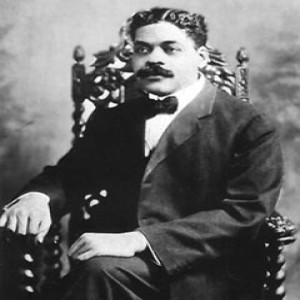
On this day in labor history, the year was 1874.
That was the day Arturo Alfonso Schomburg was born.
Schomburg was an important figure in the Harlem Renaissance.
He is also considered a premier historian and collector of material on black life in America.
Born and raised in Puerto Rico, he arrived in the United States in 1891 and soon settled into the Cuban and Puerto Rican working class neighborhoods of New York City.
Schomburg initially involved himself in the Cuban and Puerto Rican Independence movements.
When he traveled to New Orleans, he experienced Jim Crow discrimination and witnessed black disenfranchisement firsthand.
He reacted strongly to the increased racial tensions, lynchings and race riots of the period and believed that “history must restore what slavery took away.”
In 1911, Schomburg and his friend, John Edward Bruce founded the Negro Society for Historical Research and established lasting friendships with intellectuals like W.E.B. DuBois.
He worked for the inclusion of black history into the educational system and continued to amass a wide collection of literature, art, books, pamphlets and manuscripts on black life and history.
His collection spanned material from across the world.
It included letters of Haitian revolutionary leader Toussaint L’Ouverture, poetry by Phyllis Wheatley, artifacts from Fredrick Douglass and other black leaders.
Schomburg’s private collection became the basis for the 135th Street Branch of the New York Public Library’s Division of Negro Literature, History, and Prints, which opened in 1925.
The division served as a pivotal resource for Harlem Renaissance writers, poets and artists.
Known today as the Schomburg Center for Research in Black Culture, it is recognized as a leading repository for materials and artifacts on black cultural life.
More Episodes
 2023-05-30
2023-05-30
 2023-05-29
2023-05-29
 2023-05-28
2023-05-28
 2023-05-27
2023-05-27
 2023-05-26
2023-05-26
 2023-05-25
2023-05-25
 2023-05-24
2023-05-24
 2023-05-23
2023-05-23
 2023-05-22
2023-05-22
 2023-05-21
2023-05-21
 2023-05-21
2023-05-21
 2023-05-19
2023-05-19
 2023-05-18
2023-05-18
 2023-05-17
2023-05-17
 2023-05-16
2023-05-16
 2023-05-15
2023-05-15
 2023-05-14
2023-05-14
 2023-05-11
2023-05-11
Create your
podcast in
minutes
- Full-featured podcast site
- Unlimited storage and bandwidth
- Comprehensive podcast stats
- Distribute to Apple Podcasts, Spotify, and more
- Make money with your podcast
It is Free
- Privacy Policy
- Cookie Policy
- Terms of Use
- Consent Preferences
- Copyright © 2015-2024 Podbean.com




